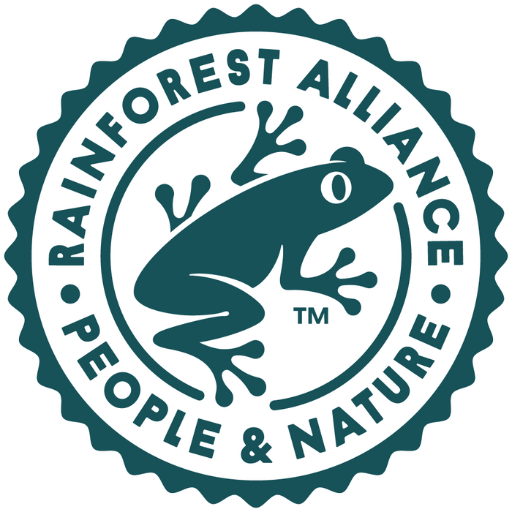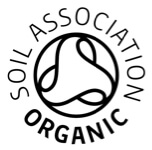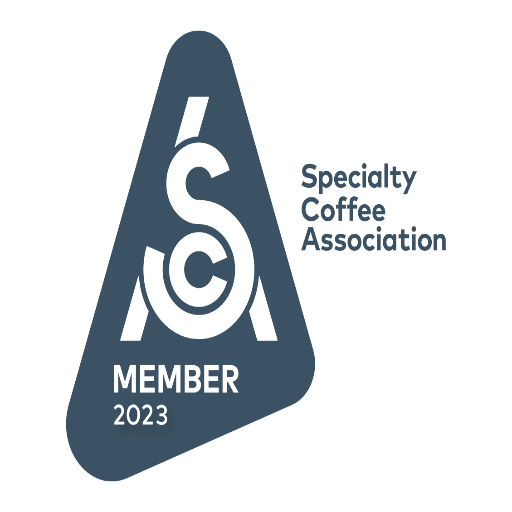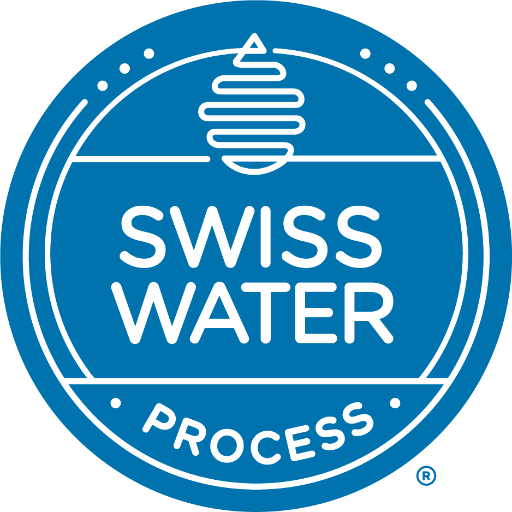This month, we catch up with Erin Reed, the Director of Marketing at Swiss Water Decaffeinated Coffee. We have worked with Swiss Water Decaf since 2001 when we were their first distributor in Europe, and are proud to be their exclusive partners in the UK.
Swiss Water® Process was designed as an alternative to using Methylene Chloride as a decaffeination solvent. They are fully committed to quality coffee, and are committed to never using chemicals to remove caffeine. Proudly keeping Methylene Chloride and Ethyl Acetate out of the facility and away from your coffee.
 Erin Reed, the Director of Marketing at Swiss Water Decaffeinated Coffee
Erin Reed, the Director of Marketing at Swiss Water Decaffeinated Coffee
Hey Erin!
Tell us a little about you.
I am the Director of Marketing at Swiss Water Decaffeinated Coffee, and joined the company in 2018. While the Swiss Water® Process decaffeination plant is located in British Columbia, Canada, my role is one of a handful in the company that are performed remotely.
Tell us about your journey in coffee and current role in SWD.
In my current role, I’m responsible for creating awareness for the Swiss Water® Process and its benefits among both the coffee industry and consumers, and contributing to growth across these audiences. I am fortunate to get to perform a very wide range of marketing activity as a result.
Within coffee specifically, prior to joining Swiss Water, I had two different employment stints at Starbucks Coffee Company. One of the benefits of working for a company of that size is the variety of roles and learning opportunities available. My first job was in regional marketing, then progressed to managing U.S. national promotions, and later supported international marketing. In my second tour of duty, I was able to transition into more traditional product management roles (e.g., coffee, merchandise), and also supported different areas of the business such as licensed stores, foodservice and the retail tea brand, Teavana. The knowledge and skills I gained there get applied regularly in my current role. Starbucks also served as my introduction and foundation in the fundamentals of tasting coffee.
 Shooting a U.S. consumer ad
Shooting a U.S. consumer ad
What does a typical day look like for you?
My typical day equals variety. It starts with enjoying a cup of coffee—and I’m trying to get more intentional in my daily tasting. But after that, anything goes depending on the priority and the deadline. Some examples include:
- Strategic projects such as consumer and trade advertising planning (and then overseeing execution)
- Preparing presentations and guiding communications to promote Swiss Water® Process benefits and differentiation
- Briefing research and analyzing data to help customers be more knowledgeable and ultimately successful in selling decaf
- Leading the sustainability strategy and evaluating new opportunities for our engagement
- Supporting team members in their efforts across digital communications, trade show planning, brand use approvals, and a variety of other marketing activity
What things do you see in marketing that you wished more people asked about?
I wish more people knew to ask how their coffee was decaffeinated. At the consumer level, while knowledge is growing, people are still largely unaware of how coffee is decaffeinated. They don’t always know that they have a choice—using chemicals that may leave residuals, or via a chemical free process such as Swiss Water® Process. Of course, even amongst the chemical free processes, not all are truly without chemical residuals (though ours is). Across multiple studies, we consistently see that when consumers (whether they drink both regular & decaf, or only decaf) know about the decaffeination process, they care and would prefer a chemical free option.
Have you seen any changes in the type of marketing asked for by roasters over the last few years? What were they?
Our most common request remains the ability to promote the Swiss Water® Process brand and benefits in their communications and on packaging, which we try to make easy. Building on the prior question and consumers caring when they know about the process, this can be a differentiating advantage to a roaster.
From a coffee standpoint, we have seen demand for sustainably certified coffees grow as well as interest in traceability. We are also seeing increasing interest in variety of decafs in terms of both unique and varied origins and processing methods.
 Consumer Awareness Advertising
Consumer Awareness Advertising
Containers (or lack of) and supply issues were a huge issue too – what was your stress relief/how do you relax after a stressful day at work? (Are you a runner, cocktail maker, boxer etc?)
I can’t take any credit whatsoever for dealing with the massive supply chain and logistics issues that my talented colleagues both faced and successfully addressed. I am privileged to have a really great job that isn’t truly stressful very often, but having taken up the sport a few years ago, competing and trying to improve at tennis is my primary outlet these days.
We saw a considerable uplift in Decaf demand in the Pandemic, was that the same for you in the factory? How did you get on with that while keeping socially distanced?!
Yes! Of course, the initial phase of the pandemic saw some drop-off as the world came to a standstill. But following those initial months, decaf demand truly picked up. My personal theory was that we all took to more caffeine (and more alcohol) to help us through this life upending time, but then realized after a few months that it wasn’t going to be a healthy choice long term and converted to decaf…because the ritual of coffee itself is comforting and decaf keeps people in the coffee category. However, we also have some research data to validate the demand increase. According to StudyLogic, consumption of decaf (cups) grew to all time high levels in both Western Europe and the U.S. in 2021. And in a consumer study of decaf drinkers (both exclusive and dual) we fielded through Hanover Research earlier this year, 68% stated that they drink decaf more often since the start of the pandemic. Their primary reasons were to reduce anxiety and improve sleep quality, in addition to having discovered good tasting decaf. Decaf represents 12% of cups consumed in Europe (StudyLogic), and roasters and brands who consider decaf as an afterthought are missing an opportunity to grow their business and establish loyalty.
In terms of keeping decaf production up and running to meet the high demand, our teams followed the CDC and Health Canada guidelines pertaining to COVID-19 and were able to safely keep the plant running on its normal 24/7 basis.

Where did you grow up and where do you live now?
I was raised in the Bay Area in northern California—specifically in Santa Clara in the heart of Silicon Valley and the city that is now home to the San Francisco 49ers (it’s always so strange to think of my hometown as now being on the national—and even international—map). Although I’ve lived more than half of my life in California, I’m approaching the eclipse, but envision living there again in the future.
I’ve been fortunate to live in various regions of the country—and even internationally for a year—but 1.5 years ago moved to Colorado Springs. It is a fast-growing area, so has some parallels in that regard (and the frequent sunshine) to where I was raised.
If you had one day in your city, how would you spend it?
Although the natural beauty of the “front range” of the Rocky Mountains is visible from anywhere in Colorado Springs, visiting Garden of the Gods, which is an area of stunning natural red rock formations is a must. The city is also home to the U.S. Air Force Academy, one of only three military service academies in the U.S., and is special in its own right. Next up, would visit the U.S. Olympic and Paralympic Museum (Colorado Springs is the training center for a majority of U.S. Olympic teams due to the altitude), which has a really interesting Olympic history and a lot of cool interactive activities. Finally, a stop at any number of local restaurants for some Colorado green chile stew (often served over burritos or fries (chips for you all!)) and a tasty local microbrew would cap off a really good day here.
 Garden of the Gods Park, a designated National Natural Landmark in Colorado Springs
Garden of the Gods Park, a designated National Natural Landmark in Colorado Springs
Is there one region in the world that in your opinion is really nailing it when it comes to decaf? What do they do right?
Quality decaf is growing in most of the world and attention to processing methods is on the rise. And we value our long-term partnership with DRWakefield in helping to advance this effort in the UK and Europe. At risk of sounding biased—though I am American so technically am not—Canada has the right approach. They are the only country globally that has a regulatory requirement for disclosure of the decaffeination process. This allows for the consumer to continue to own the choice of how their coffee is decaffeinated, but it does bring forward awareness of the various processing methods and invites education. There are also a large number of specialty roasters across Canada who are taking decaf seriously, offering really interesting, high-quality coffees—and one even brought forth a Swiss Water® Processed decaf Panama Gesha to the national barista championships…talk about trust and a compliment!
 Caffeine Rich GCE Tank
Caffeine Rich GCE Tank
Do you have a mantra you live by?
Not really, but I try to make a conscious effort to be grateful in my life, and to accept all types of people—celebrating their strengths and the good that our differences bring.
You’ve hired a stadium and can choose three bands to headline. Who are they?
It’s hard to choose only three since music and going to concerts have always been a big part of my life. But here’s my short list: Erykah Badu, Kendrick Lamar and Stevie Nicks/Fleetwood Mac.
How do you take your coffee?
Pour over, black.
What is your favorite origin, coffee varietal, and processing method?
Although somewhat gauche in the specialty world, I do really love a natural processed Ethiopian. But I also enjoy exploring the variety of our Small Batch Series offerings, with a range of origins, processing methods and characteristics. The decaf anaerobic natural processed Panama Chiriqui we had recently was pretty special.









